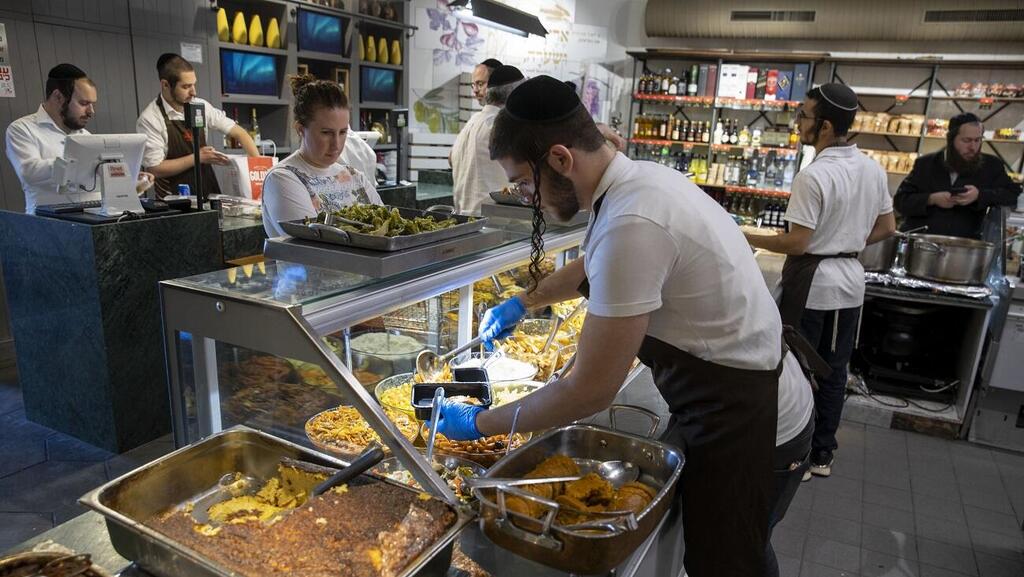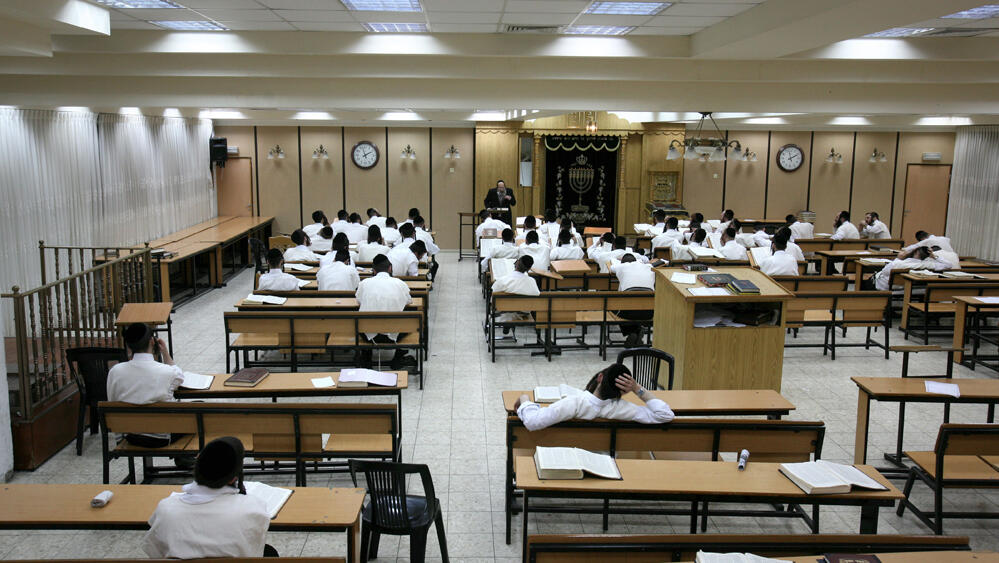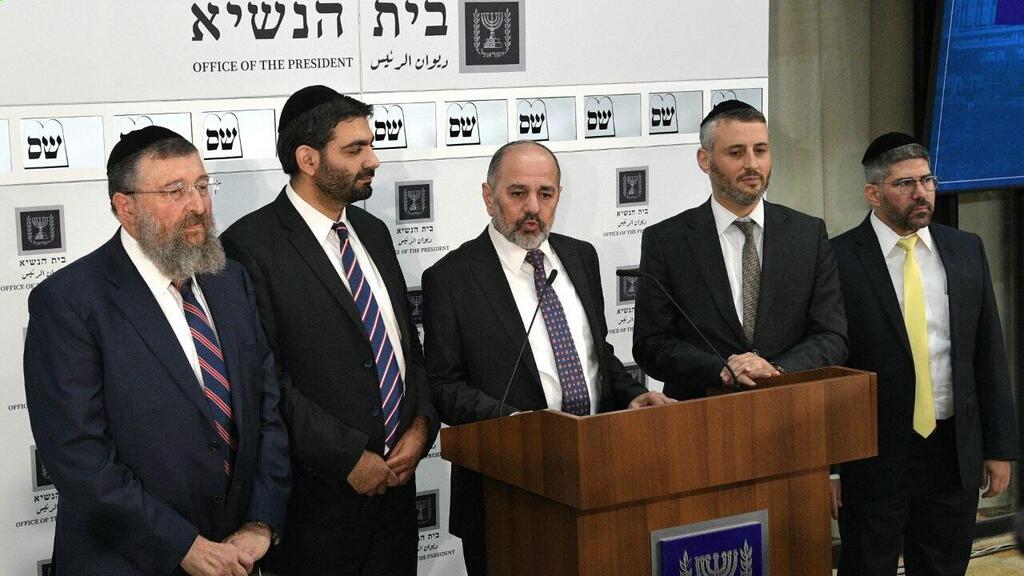Meet Zeevi Tepper - a 35-year-old ultra-Orthodox man from the central Israeli settlement of Elad, a father of six, and holder of pilot's license.
Tepper is in the final stretch of the 250 hours of flight required to operate a passenger plane, and is also in the middle of his law studies. On top of all that, he works double shifts to finance it all.
During our conversation in recent days, he shared that his goal is to complete 1,000 hours at the cockpit within the next few years, and become a full-time pilot in El Al airlines - the flag carrier of Israel.
Tepper is one of many young Haredi people who wish to acquire education and employment. Many ultra-Orthodox men and women like him are pursuing all sorts of prestigious professions, such as tax consultants, accountants, lawyers, architects, psychologists, and private market roles. Additionally, Haredi often times fill roles of air-conditioning technicians, electricians, truck drivers, and store workers.
As of this year, 65 percent of the ultra-Orthodox in Israel are active in the labor market, including both men and women. The employment rate among men is 52%, which is low in relation to the expectations of the Israeli economy overall.
I present this as an introduction to a discussion on an issue that surfaced in face of the request of the ultra-Orthodox parties to increase the funding of yeshiva students after years of cutbacks. Those who believe that the subject of Haredi in the labor market contradicts that request, don't truly know the ultra-Orthodox world.
Most of the ultra-Orthodox public - including those who work hard for their living - see the yeshiva students who dedicated their youth years to studying the Torah, as saviors who allow the rest of the sector to take part in the labor market thanks to their holy work of praying for all of us. In other words, the fact that at every given moment there are yeshiva students who study the Torah, is what enables other members of the Haredi community to take part in the modern practical world: work, pay taxes, and contribute to Israeli economy and society.
In the past couple of days, arguments have been made that the 1,314 NIS (388 USD) each yeshiva student would potentially receive with proposed reforms, would act as a negative incentive to enter the labor market and suppress economic growth. This is an absurd argument. I find it hard to believe that this sum of money really plays a role in determining whether an individual should study Torah or go to work.
The yeshiva students survived up until now with the government support of 680 NIS (200 USD), not because they were using it to obtain capital and become rich, rather because they truly believe Torah is the way of life.
Here's another statistic to take into consideration before making provocative statements: The wife of each yeshiva student is a working woman. Hundreds of thousands of ultra-Orthodox women are employed in many fields - from education to high-tech - and hence, they play a part in the Israeli economy.
Therefore, in an indirect way, the taxes women pay to the state cover part of the budget that goes towards funding their yeshiva-attending husbands. Thus, arguing that Israeli citizens carry the burden of the yeshiva students on their backs is an inaccurate and populist statement.
The Haredi workers expect that some of their taxes will come around to support the yeshiva students, even if they have to settle for a symbolic sum.
Another thing to be noted is that the interests of the ultra-Orthodox society are excluded from the state budget. For example, the budget of the Culture and Sports Ministry has little contribution to the Haredi public. Torah-studying students are the heart and soul of the Haredi culture, and it is their right to ask for financial support.
For many officials on the losing side of the latest round of elections, the upcoming government is a disaster. But I choose to look at it as an opportunity.
Aside from the fact that it was democratically elected, a reality in which Haredi Knesset members will have authority over important decision-making processes of the economy will require them to broaden their perspective of society as a whole, and consider the welfare of all its individual agents.
Here's a piece of advice - give them a chance, you might end up surprised.




